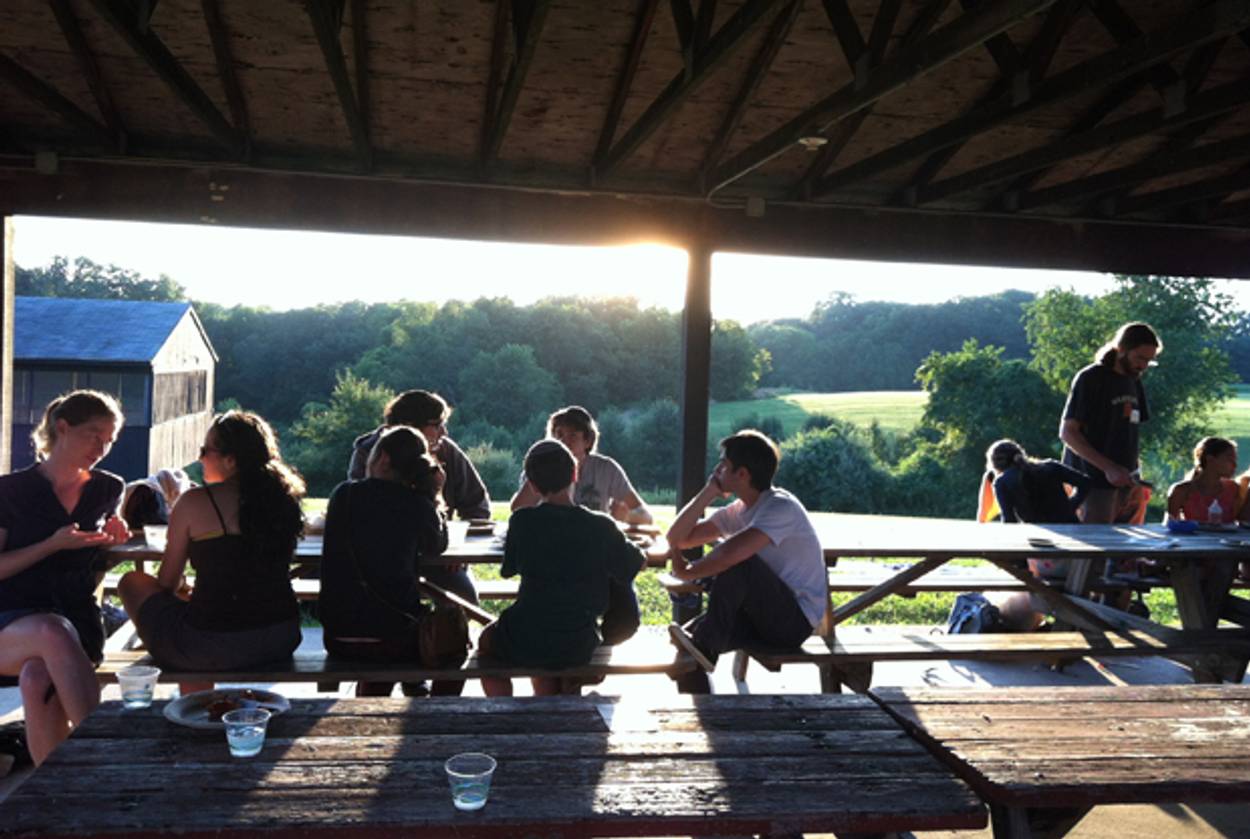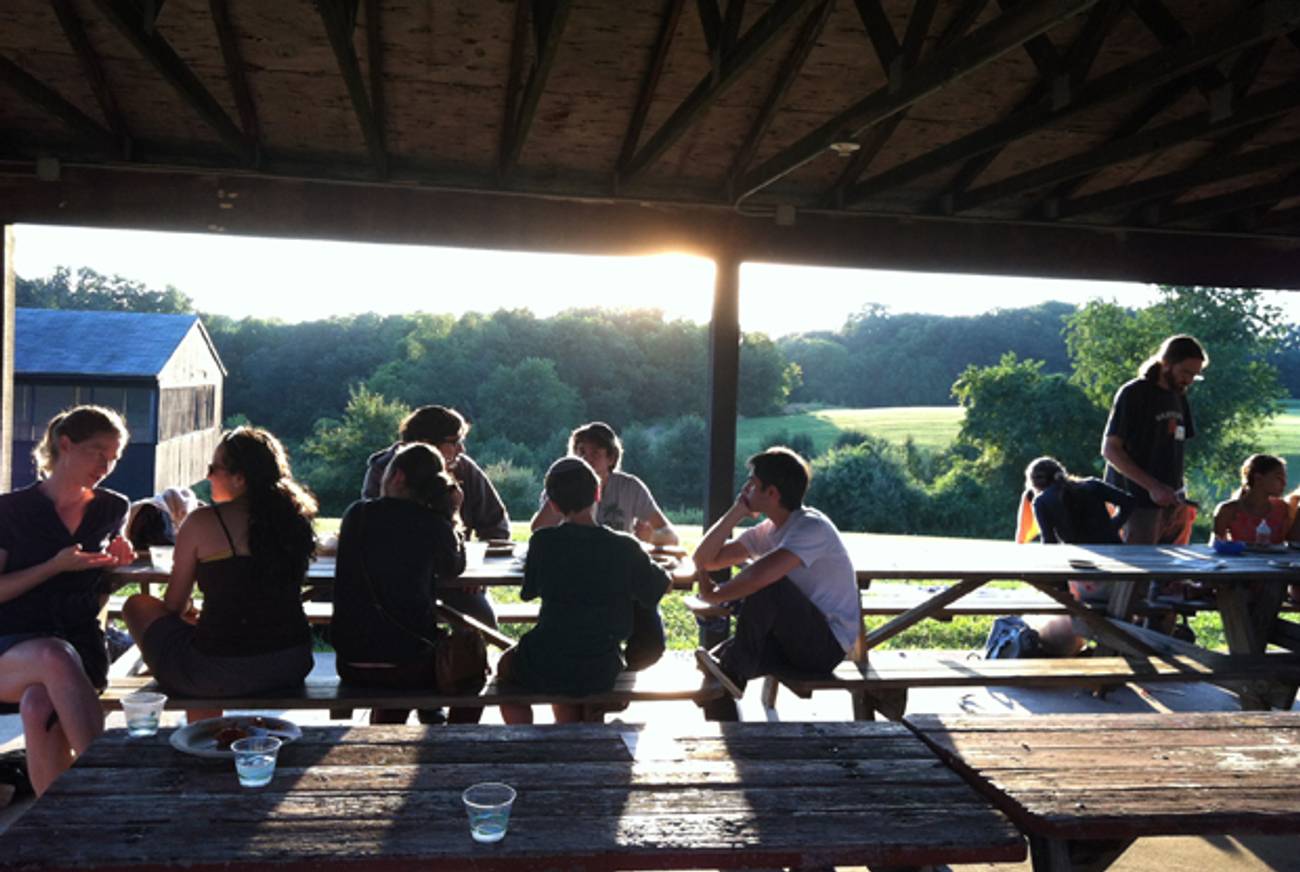Finding an Unlikely Serenity at Yiddish Vokh
Annual retreat draws a diverse group with a love for the Jewish language




When my mother passed away two and a half years ago, I realized that I had lost not only her but Yiddish, too. It’s not that she spoke it much, but she lived it and because I loved her, it became a primitive, pressing need for me to memorialize her by speaking the language of her early life.
So last year, when I saw an ad for Yiddish Vokh, the annual summer retreat for Yiddish speakers held in Maryland, I jumped at the chance to go.
Everyone there came to Yiddish from different angles, but we shared a loving attachment to the language. It is, after all, a language of the street, and I am not the first to say that something about us as Jews is embedded in it—precarious and yet still vibrant. Surely, all of us there at Yiddish Vokh, from the elders in their 70s and 80s to the people in their 20s, even in the babes-in-arms and younger, knew that we were the custodians of a near-museum language—a limb that has been snipped off the Jewish tree of life.
And yet here we were, the handful of us, some from as far away as Australia and South America, and from across the country, various religious affiliations and orientations. We were talking, being, and doing in Yiddish: a play, a talent show, a yoga class, a game of ultimate Frisbee on the wide lawn. One genial man, a computer science professor at the University of Kentucky, on the last day of Yiddish Vokh led that ever-present Jewish staple: a Mishnah study session in Yiddish. But unlike most of the study groups held in synagogues and shtibls the world over, this one brought together men and women; the people did not appear Orthodox—or even Jewish. But in the room some spoke with that unmistakable Yiddish sigh that I can recognize anywhere. It was, for the most part, a secular exercise that was still linked almost despite itself to the received sacredness of Sinai. You could feel it even if you didn’t want to.
Back and forth with commentary we discussed the arcane and detailed laws of usury and price-gouging—when and where they apply, whether to metaltelin or karka, movables or immovable, furniture or land. These things I am sure no one there had given a thought to prior to the study group and yet, in that particularly Jewish way, all of a sudden, they mattered a great deal and took on great meaning. One man offered his opinion, the lecturer another, still a third asked whether a corporation could charge interest as opposed to an individual (apparently, it can). The lecturer nodded his head in happy affirmation. The children were taking the milk!
I got excited too. I was doing something utterly familiar to me, but in an unfamiliar setting and in a new way. Here in this momentary spell of toyreh, my Yiddish was achieving full potency. I was using words I didn’t know I knew, like shtraf (penalty) and mebel (furniture). I felt satisfied with myself a little bit. I am a knocker. I can play this game!
In in early part of the last century, faith and skepticism were at odds with one another and competed for dominion over the Jewish soul. It was a period of restlessness and collective dreaming: Zionists, socialists, anarchists, the denizens of the Yiddish theater, not to mention the masses in flight from tradition and, of course, the faithful minority, who fought against the encroachments of modernity. It was a time when Yiddish culture got divorced from Yiddishkeit and Jewish religion. Now it was different. For many a Yiddish-speaker there, God was a presence even if they didn’t follow His rules all the time, even if they had doubts about His existence. But then, during the study session, the melancholy Yiddish of my grandmother, the exuberant Yiddish of my grandfather, the learned Yiddish of my father, and everyone else’s Yiddish converged and commingled. My significant dead conversed with one another on the fertile green fields of Maryland and I became afflicted with a terrible, regrettable, and un-Jewish serenity.
Previous: Yiddish Goes Virtual With Online Classes
Stop Kvetching: Yiddish Isn’t Dying
Related: Where Did Yiddish Come From?
Alter Yisrael Shimon Feuerman, a psychotherapist in New Jersey, is director of The New Center for Advanced Psychotherapy Studies. He is also author of the Yiddish novel Yankel and Leah.